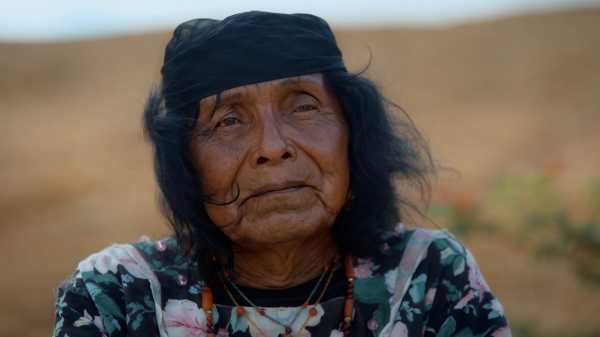
“Two-Spirit” explores the intersection of transphobia with problems like sexism and poverty in an Indigenous community in Colombia.
While scanning social media one day, the Colombian filmmaker Mónica Taboada-Tapia happened upon a video interview of a woman named Georgina. “I listened to her, and I was crying,” Taboada-Tapia remembers now. Georgina is transgender, and a member of the Indigenous Wayuu community. In the interview, she was describing a violent attack that she survived in her rural village in La Guajira, in northern Colombia—the state that Taboada-Tapia’s maternal family was from. She felt an uncanny connection. “That night, I dreamt of her,” Taboada-Tapia said. Soon afterward, the two met. “She was so kind, so tender. I was, like, ‘Oh, my gosh, this person is beautiful.’ ”
Taboada-Tapia’s documentary short, “Two-Spirit,” explores the intersection of transphobia with problems like sexism and poverty in Georgina’s community of about a hundred and fifty Wayuu people. Even Georgina’s ability to draw scarce potable water from a nearby spout is controlled by people prejudiced against her—which, like her other troubles, is a ripple caused by a larger force. Water is scant because La Guajira hosts one of the world’s largest open-pit coal mines, which “dries the rivers, poisons the water, changes the direction of the rivers,” Taboada-Tapia said. “It is a nightmare.” Global campaigns decrying the havoc wreaked by the mine had managed to impact demand, but then Vladimir Putin’s army invaded Ukraine—and now it appears that Europe, seeking to cut its dependence on Russian energy, will lean on Colombia, so the extraction continues. But the issue feels entirely personal when Georgina is barred from the water pump. For her, the spear of geopolitics is tipped with transphobia. “She is a kind of outcast,” Taboada-Tapia said. “I think everyone at least once in their lives has felt as an outcast, excluded in some sense. I felt her.”
The New Yorker Documentary
View the latest or submit your own film.

Georgina’s isolation is apparent in every scene. She arrived in the village years ago with her then partner, a man who later left her for another woman; she has since lived alone. One night, a group of her neighbors set her home on fire while she was inside. She barely escaped, and the scene is re-created in Taboada-Tapia’s film. (While watching the prop house dissolve into ash, Georgina cried, beset by the memory.) Her survival makes her an inspiration to the local L.G.B.T.Q. movement, Taboada-Tapia said, because “so many trans women in marginalized communities are killed. But she escaped death, literally.”
Taboada-Tapia shot “Two-Spirit” in 2018 and 2020, and across time it became evident that Georgina has accrued respect. “She has a great personality. She’s so amicable,” Taboada-Tapia said. “People see her like a shaman, because she meets a person and immediately is talking with that person about sicknesses, plants, advice.” Taboada-Tapia also increasingly found resonance with her own life. Much of the scorn against Georgina is sexist, and in childhood Taboada-Tapia had watched her mother “struggling so hard as a woman, and it made me think very much about our destiny as women,” she said. Machismo and the violence of gender norms continue to dog her career—when she was in film school, female directors were still rare. Then the filmmaker discovered a family secret: her maternal line from La Guajira includes ancestry that is Indigenous, and also pan-African, including Congolese and Angolese. The more she immersed herself in Georgina’s story, the more she also encountered her own.
Recently, Taboada-Tapia showed “Two-Spirit” to Georgina, who laughed through most of it, amused by the familiar people and pitfalls of the village. But, during one scene, in which she appears sitting near a woman with gray hair and gazing into logs aflame, Georgina grew quiet. The woman, Catalina, was a friend who has since died. She was returned to life on the screen, and Georgina, struck, murmured her name. ♦
Sourse: newyorker.com






